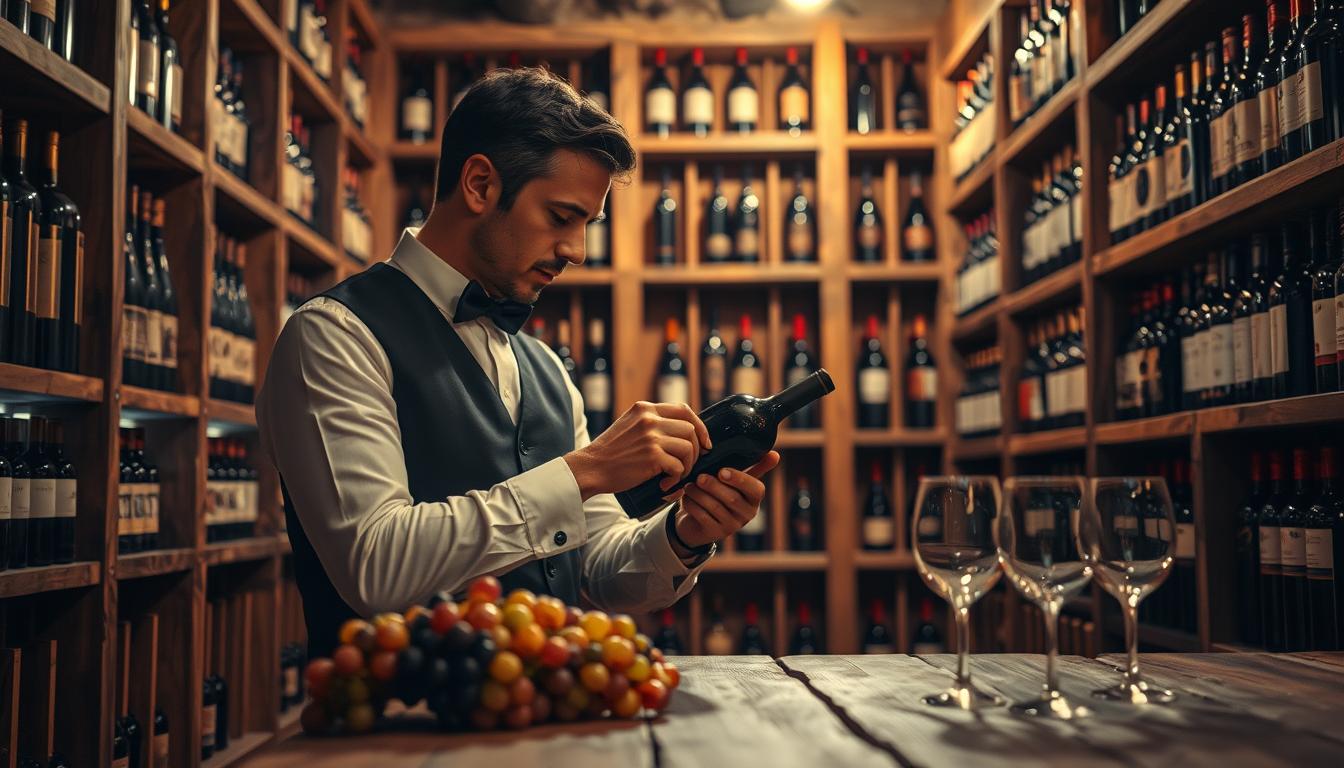Imagine walking into a vibrant restaurant, the air filled with chatter, laughter, and the unmistakable aroma of culinary delights. Yet, amidst the buzz, your senses are drawn to one singular experience: the elegant dance of a well-paired wine. As you hold a glass, the rich color captivates you, and the delicate notes tantalize your palate, making you wonder about the journey of that bottle. This is the essence of a sommelier—not merely a wine steward, but a passionate wine expert committed to enhancing every dining experience through careful curation and profound knowledge.
In recent years, the role of a sommelier has gained unprecedented popularity, echoing a collective curiosity that extends far beyond mere consumption. Individuals aspiring to this path are not just chasing a title of certified sommelier; they are embarking on a rich journey of learning, tasting, and connecting with cultures through wine. Together, we will explore what it takes to master this nuanced art, from understanding the profession’s evolution to discovering educational pathways and the high stakes of certification exams. Get ready to uncork your potential and delve into the world of wine mastery.
Key Takeaways
- The role of a sommelier is essential for enhancing the dining experience.
- Current interest in wine education presents numerous professional opportunities.
- Becoming a certified sommelier requires dedication and continuous learning.
- The path includes understanding the evolution of the sommelier profession.
- Embarking on this journey allows you to connect with diverse cultures through wine.
Understanding the Role of a Sommelier
A sommelier is a trained wine expert dedicated to enhancing the dining experience through exceptional wine service. This profession has evolved significantly, and today, a sommelier is recognized not just as a wine waiter but as a vital member of the restaurant team, often acting as a wine consultant who offers tailored advice and innovative pairings. By focusing on wine selection and educating customers, sommeliers play an essential role in customer satisfaction and dining enjoyment.
Definition and Responsibilities
The responsibilities of a sommelier are diverse and integral to effective wine service. A sommelier communicates with customers to understand their preferences, provides wine recommendations, and oversees the selection process. Key duties include:
- Creating and maintaining a curated wine list, ensuring it reflects trends and customer tastes.
- Managing the restaurant’s wine cellar, including inventory management, storage, and purchasing.
- Conducting proper wine service, which involves opening and decanting wine, serving at the right temperature, and ensuring suitable glassware.
- Training staff on wine knowledge and service techniques to enhance overall customer experience.
- Collaborating with wine suppliers to negotiate prices and create advantageous purchasing agreements.
Through these responsibilities, sommeliers can drive sales, boost profitability, and ultimately contribute to the restaurant’s success.
The Evolution of the Sommelier Profession
Historically, the role of a sommelier was primarily focused on serving wine. Over time, the profession has embraced a broader scope, reflecting a sophisticated understanding of wine that includes regions, grape varieties, and winemaking techniques. Today, sommeliers play an essential role in not only managing wine services but also in elevating the overall culinary experience. This transformation highlights the importance of professional training and continuous learning in this dynamic field. With a strong foundational knowledge, modern sommeliers enhance their profiling through attending wine-related events, engaging in masterclasses, and staying updated on wine trends; these actions distinguish them from traditional wine waiters.

The Journey to Becoming a Sommelier
Your journey to becoming a sommelier starts with a genuine interest in wine. Committing to understanding this complex world involves both education and hands-on experience. While various certification programs exist, pursuing formal education plays a significant role in laying the groundwork for your wine knowledge.
Initial Steps to Get Started
Importance of Industry Experience
Gaining practical experience in the hospitality sector cannot be overstated. Working in restaurants or wine shops helps you grasp essential wine service techniques and improve your customer interaction skills. Engaging with seasoned professionals through mentorship offers invaluable insights and aids in developing your wine knowledge. Networking remains crucial for aspiring sommeliers, as building relationships with industry peers allows for sharing insights and discovering new wines. Traveling to renowned wine regions and meeting winemakers provides further immersion into wine culture, enriching your education and experience. Understanding that the salary for a wine sommelier typically ranges from $48,000 to $120,000, depending on various factors, may motivate you to commit fully to this rewarding career.

| Certification Program | Highlights |
|---|---|
| Italian Sommelier Association | Covers viticulture, enology, tasting, and service. |
| Boston University | 12-week intensive course with 150 wines. |
| Court of Master Sommeliers | Offers multiple certification levels, including Master Sommelier. |
| Networking and Mentorship | Crucial for skill development and industry insights. |
Sommelier Education and Certification
Education and certification play critical roles in your journey to becoming a skilled sommelier. Various organizations offer structured programs designed to enhance your knowledge of wines, spirits, and their service. Two prominent bodies in sommelier education include the Court of Master Sommeliers and the Wine & Spirit Education Trust (WSET), each focusing on different aspects of wine knowledge and service training.
Overview of Certification Bodies
Both the Court of Master Sommeliers and WSET provide invaluable resources for those seeking sommelier certification. Each program highlights distinct approaches to wine education, catering to diverse learning preferences and career aspirations.
The Court of Master Sommeliers
The Court of Master Sommeliers emphasizes a rigorous path for obtaining sommelier certification. It begins with the Introductory Sommelier Course, priced at $839 for in-person attendance and $599 for online learning. This initial course covers essential wine-growing regions and foundational knowledge about spirits and service techniques. Upon completion, you can undertake the Certified Sommelier Examination, which includes tasting, theory, and service evaluations. Passing this exam requires a minimum score of 60% across all sections and is pivotal for advancement to higher certification levels.
Wine & Spirit Education Trust (WSET)
WSET, renowned for its comprehensive approach, offers a wider spectrum of education for both enthusiasts and professionals. Its curriculum includes detailed studies of wine regions, production methods, and sensory analysis. Graduates of WSET programs often gain a solid grounding in various beverages, equipping them for diverse roles within the hospitality industry. Unlike the Court of Master Sommeliers, WSET’s programs can lead to multiple certifications, enhancing your qualifications and expanding your expertise.

| Certification Body | Focus | Course Offerings | Exam Format |
|---|---|---|---|
| Court of Master Sommeliers | Wine service techniques and deep product knowledge | Introductory Sommelier Course, Certified Sommelier Exam | Multiple-choice, tasting, and practical service tasks |
| WSET | Broader wine knowledge and tasting skills | Various levels of WSET certifications (1-4) | Multiple-choice and written assessments |
Embarking on this journey requires dedication and passion, and with the support of reputable bodies like the Court of Master Sommeliers and WSET, you can cultivate the skills necessary for a successful career in wine. Investing in your sommelier education will undoubtedly enhance your understanding and appreciation of this art.
Sommelier Certification Levels
Understanding the sommelier certification levels is essential for anyone considering a career in this field. Each level offers a different depth of knowledge and skill set, preparing you for various roles in the wine industry. Below are the primary certifications recognized in the sommelier community.
Introductory Sommelier Certificate
The Introductory Sommelier Certificate lays the foundation for your sommelier education. This three-day course includes multiple-choice questions and practical assessments to gauge your initial understanding of wine. Completing this certification marks your first official step toward becoming a certified sommelier.
Certified Sommelier Examination
Taking the Certified Sommelier Examination is a significant leap in your certification journey. This comprehensive three-part exam covers theory, blind tasting, and practical service. Candidates should anticipate a considerable amount of preparation, often recommended at one year after completing the Introductory course. The cost of this examination is around $600, making it accessible for many aspiring sommeliers.
Advanced Sommelier Certificate
The Advanced Sommelier Certificate presents a more challenging opportunity. This five-day program requires extensive knowledge and skills. The pass rate for this evaluation is low, typically around 25–30%, reflecting the rigorous standards set by the Court of Master Sommeliers. There are only three sessions offered each year, further emphasizing the competitive nature of this sommelier certification level.
Master Sommelier Diploma
Achieving the Master Sommelier Diploma represents the pinnacle of achievement in sommelier education. With only 269 current credentialed members, this certification demands years of dedication and preparation. The examination process is grueling, resulting in a pass rate of approximately 10% for the theory portion. Since its inception in 1977, only 274 individuals have earned this prestigious title.
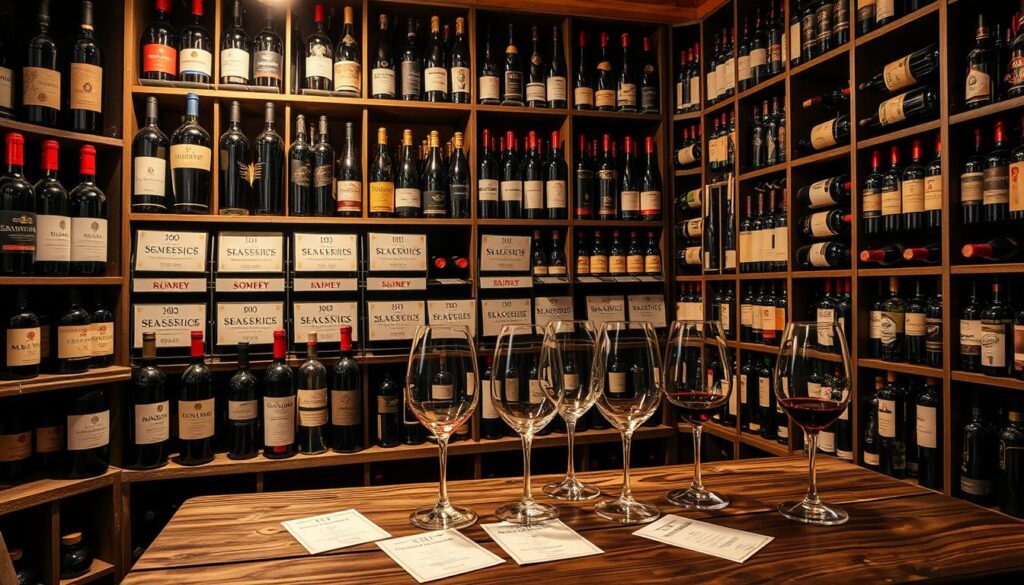
| Certification Level | Duration | Cost | Pass Rate |
|---|---|---|---|
| Introductory Sommelier Certificate | 3 days | Varies | N/A |
| Certified Sommelier Examination | Varies (1 year recommended prep) | $600 | N/A |
| Advanced Sommelier Certificate | 5 days | Varies | 25–30% |
| Master Sommelier Diploma | Years of study | Varies | 10% |
Mastering Wine Knowledge
To become a successful sommelier, mastering wine knowledge is essential. This includes a comprehensive understanding of grape varietals and the regions they thrive in. Each varietal carries its distinctive characteristics and flavor profiles, influenced by the land and climate where it’s cultivated. Recognizing these elements enables you to make informed recommendations that enhance the dining experience.
Understanding Grapes and Regions
Grape varietals are the building blocks of wine. From Cabernet Sauvignon to Chardonnay, each variety has unique traits that can be paired with different foods. Familiarizing yourself with various wine-producing regions will deepen your appreciation for the nuances in flavor that geography presents. This knowledge helps you not only select wines but communicate the story behind each bottle.
Tasting Techniques and Sensory Skills
Developing proficient tasting techniques and sensory skills plays a critical role in honing your wine knowledge. By engaging your senses, you will learn to identify aromas, textures, and flavors. Practice systematic tasting procedures to accurately evaluate and describe wines. This skill not only boosts your confidence while assessing wines but also enhances your ability to convey enthusiasm and passion to your patrons.
The Science Behind Wine Making
An understanding of the science behind wine making enriches your overall expertise. This includes the fermentation processes, viticulture practices, and aging techniques that contribute to the final product. Knowledge in these areas enables you to appreciate the complexities of wine, allowing for better discussions with guests. By mastering the technical aspects, you can elevate your service quality and provide insightful recommendations.

| Grape Varietal | Region | Notable Characteristics |
|---|---|---|
| Cabernet Sauvignon | Napa Valley, California | Full-bodied, high tannins, dark fruit flavors |
| Chardonnay | Burgundy, France | Creamy texture, citrus and butter notes |
| Pinot Noir | Willamette Valley, Oregon | Light-bodied, fruity, floral aromas |
| Sauvignon Blanc | Marlborough, New Zealand | Crisp acidity, green apple, and herbaceous notes |
The Art of Wine Pairing
Wine pairing enhances your dining experience, transforming simple meals into extraordinary events. Understanding how to achieve harmonious pairings involves knowing the fundamental principles that guide wine and food selection. These principles ensure that your choices elevate both the flavors of the wine and the dish.
Principles of Wine and Food Pairing
Several key principles play a role in achieving successful wine pairing:
- Sweetness: The wine should generally be sweeter than the food to avoid a flat taste.
- Body: Matching the body of the wine with that of the food creates a more balanced experience.
- Chemistry: The interaction between the wine and food is critical, often outweighing individual flavors.
Sommeliers frequently recommend Riesling due to its high acidity and sweetness, making it versatile for various food pairings. Specific suggestions, such as pairing New Zealand Sauvignon Blanc with artichokes and asparagus, or Sangiovese with tomatoes, demonstrate how complementary flavors can enhance a dish.
Regional Pairing Techniques
Understanding regional techniques can guide your wine selection to complement local cuisines effectively. For instance, the Gamay grape, used to produce Beaujolais, pairs remarkably well with richer dishes. Chablis offers versatility for various foods due to its neutral flavor profile. Additionally, Rioja, crafted from Tempranillo grapes, features notes of clove and vanilla, making it an excellent match for seasonal gourds like squash and pumpkins.
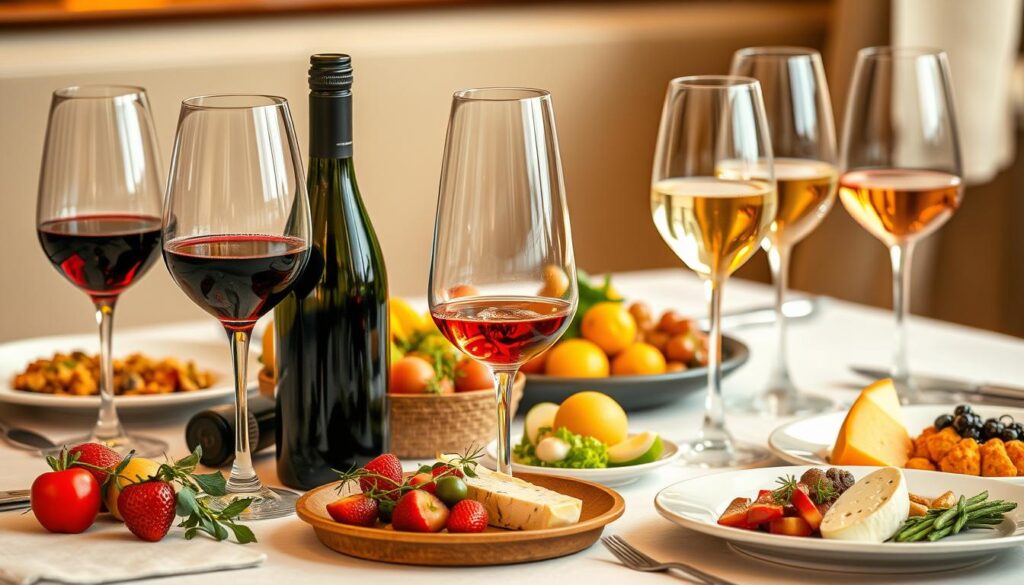
In culinary practice, challenges often arise with wine and chocolate pairings. Fortified wines such as Banyuls or Late Bottled Vintage Port typically excel in these situations. Engaging in workshops, such as those offered by the San Francisco Wine School, can broaden your understanding of how to navigate these complexities, enhancing your expertise in wine pairing.
Essential Skills for a Sommelier
Becoming a successful sommelier requires a unique blend of skills that extend beyond wine knowledge. Mastering wine service, engaging with customers, and developing effective menus are crucial aspects of this profession. Each skill contributes significantly to creating memorable experiences for guests.
Wine Service Techniques
Effective wine service plays a vital role in a sommelier’s skill set. Techniques such as pouring, decanting, and presenting wines must be executed flawlessly. A sommelier must be knowledgeable about the proper glassware and ideal serving temperatures to enhance the guest’s experience. Understanding wine service protocols not only reflects professionalism but also elevates the overall dining ambiance.
Customer Interaction and Education
Building trust with customers is essential. Sommeliers should engage diners through knowledgeable conversations that spark interest in wine. By being personable and attentive, you can help guests feel more comfortable and encouraged to explore new offerings. Providing customer education through tastings and recommendations fosters lasting relationships and enhances their enjoyment of the meal.
Menu Development and Wine Lists
Menu development is a critical component of a sommelier’s responsibilities. Creating a complementary wine list that pairs well with the cuisine showcases your expertise. This involves understanding current trends, food pairings, and clients’ palates. By curating selections that cater to diverse tastes, a sommelier can significantly contribute to the establishment’s identity.

| Skill | Description | Importance |
|---|---|---|
| Wine Service Techniques | Mastering pouring, decanting, and presenting wines. | Enhances guest experience and reflects professionalism. |
| Customer Interaction | Engaging in conversations and building trust. | Fosters memorable dining experiences. |
| Menu Development | Creating a wine list that pairs with the menu. | Highlights expertise and identity of the establishment. |
Career Opportunities as a Sommelier
As a sommelier, you have the chance to explore various career opportunities within the wine industry. These roles span from working in restaurants to consulting and education. Each path provides unique experiences, allowing for professional growth and the chance to share your passion for wine with others.
Working in Restaurants
In the restaurant sector, sommeliers often assume roles such as wine stewards or managers. These positions involve curating wine lists, conducting tastings, and ensuring that customers receive top-quality service. The transferable skills gained in this environment, including wine knowledge and customer service, make it a fulfilling pathway.
Consulting and Education Roles
Many sommeliers transition into positions as wine consultants, offering expertise to restaurants, hotels, and private collectors. In addition, there are opportunities in education, where you can share your knowledge in wine schools or organizations. Establishing connections with professional groups like Bâtonnage or GuildSomm can support this transition, highlighting the importance of networking in securing these positions.
Advancement to Master Sommelier
For those pursuing excellence, advancing to the level of master sommelier opens doors to even more prestigious career opportunities. This recognition commands respect and positions you as an authority in the wine industry. With dedication and experience, you can mentor upcoming sommeliers and potentially establish your own wine consultancy practice.
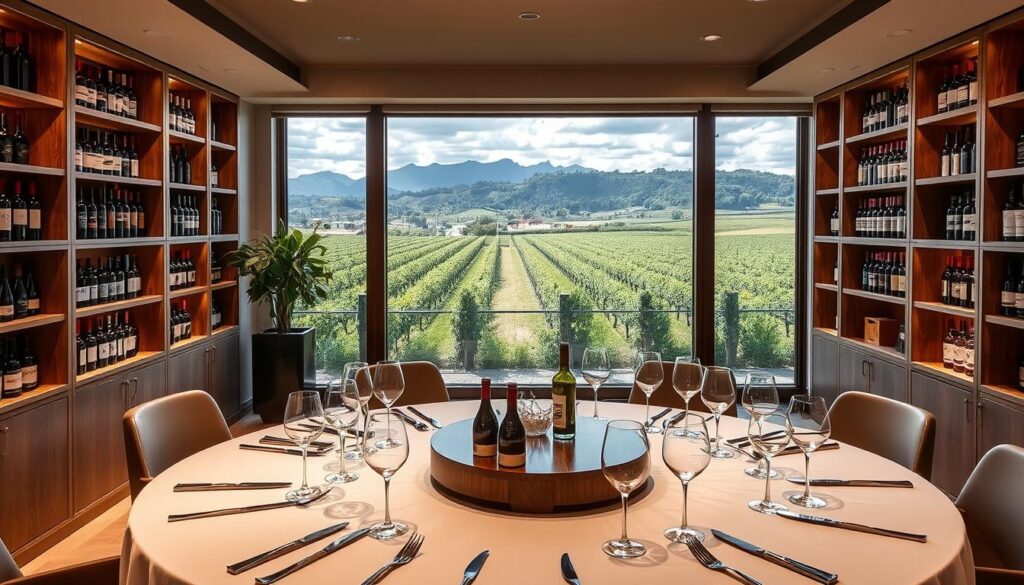
| Career Path | Key Responsibilities | Transferable Skills |
|---|---|---|
| Restaurant Sommelier | Wine list curation, staff education, customer interaction | Wine knowledge, customer service, organization |
| Wine Consultant | Advising on selections, conducting tastings, market research | Negotiation, communication, empathy |
| Educator | Teaching wine fundamentals, developing curriculum, mentorship | Collaboration, storytelling, sales experience |
| Master Sommelier | Mentoring, hosting events, public speaking | Leadership, expertise, reputation management |
Challenges on the Path to Mastery
The journey towards becoming a Master Sommelier is filled with significant certification challenges. You will face rigorous examination processes that test your knowledge and skills across various formats, including theory and practical applications. The selectivity of these tests becomes evident given the low pass rates for Master Sommelier exams, which hover around a daunting 5%. This statistic underscores the commitment and dedication required to excel in this competitive field.
High Stakes of Certification Exams
Certifications in the sommelier world serve as essential milestones, affirming your expertise and professionalism. The difficulty of sommelier exams not only tests your wine knowledge but also your ability to handle pressure and articulate your understanding of complex subjects under demanding conditions. Few can reach the pinnacle of being a Master Sommelier, as only 269 individuals hold this prestigious title worldwide. Many aspirants invest thousands of hours studying, tasting wines, and even traveling to wine regions, resulting in an average investment of upwards of $100,000 to build their expertise.
Commitment to Continuous Learning
Continuous learning is paramount in maintaining your expertise in the ever-evolving wine industry. Staying abreast of emerging wine trends, production methods, and regional developments enriches your knowledge base and enhances the experiences you provide to guests. As a sommelier, embracing lifelong learning equips you with the tools needed to engage diverse audiences and elevate their understanding of wine. Learning extends beyond formal education; it includes exploring wine programs that challenge traditional norms and encourage new explorations, reflecting the industry’s dynamic nature.
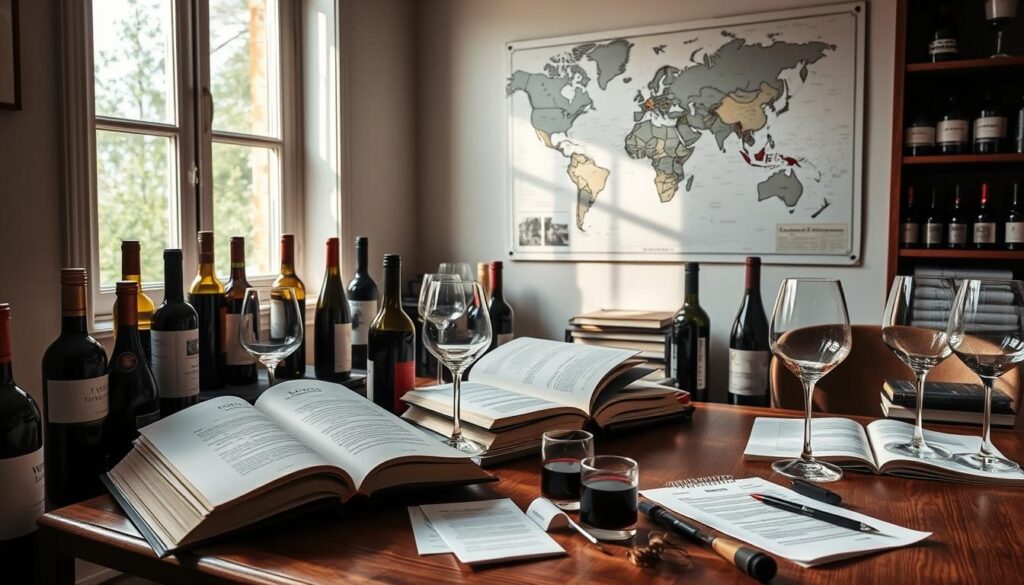
| Certification Level | Pass Rate | Preparation Time |
|---|---|---|
| Introductory Sommelier Certificate | 70% | 200 hours |
| Certified Sommelier Examination | 50% | 500 hours |
| Advanced Sommelier Certificate | 30% | 1,500 hours |
| Master Sommelier Diploma | 5% | 3,000+ hours |
In this wine-centric profession, knowing wine regions, producers, and the intricacies of wine service greatly enhances your role. Developing this depth of knowledge and skill is an art form in itself, empowering you to create memorable dining experiences and fostering a culture of appreciation for wine among enthusiasts and newcomers alike. By understanding the nuances of different wine regions, you can guide guests through their selections and recommend pairings that perfectly complement their meal. Additionally, delving into wine history and traditions allows you to share captivating stories and insights that elevate the overall dining atmosphere. Ultimately, the combination of expertise in wine regions, producers, service, and history enhances your ability to curate exceptional experiences for patrons.
Conclusion
Pursuing a career as a sommelier means fully embracing the art of wine and committing to mastering wine knowledge. Originating from the esteemed tradition of wine stewards in France, this role has evolved into one that demands rigorous education and extensive training. As you navigate various certification levels and gather industry experience, your path leads to becoming a well-rounded professional who truly appreciates the intricacies of wine.
Throughout your journey, you’ll cultivate your expertise while developing essential professional skills. As a sommelier, you’ll not only refine your tasting techniques but also learn to engage with patrons effectively, bringing your passion to life through storytelling and exceptional wine pairings. The ability to enhance dining experiences is a critical aspect of your role, transforming meals into memorable occasions by elevating flavors through thoughtful pairings.
Ultimately, the profession of a sommelier offers rewarding opportunities in the ever-growing landscape of wine enthusiasts. With dedication to continuous learning and a genuine passion for the craft, you may even aspire to achieve the prestigious status of a master sommelier. You’ll not only contribute to the art of wine but also guide others in their journey of discovering the rich, tantalizing world of flavors and aromas that wine has to offer.
